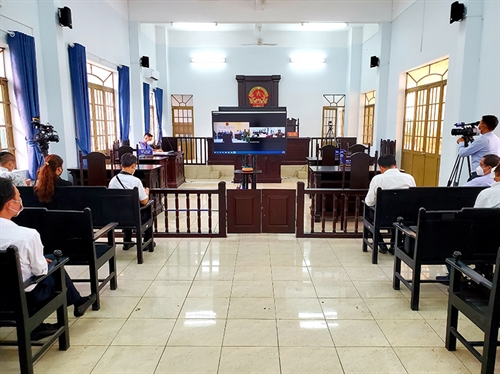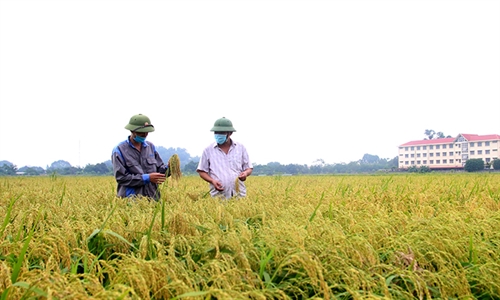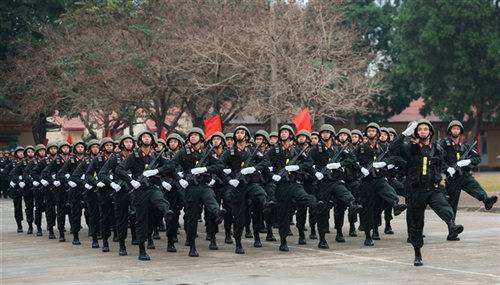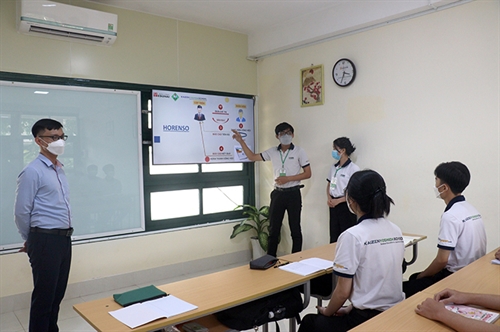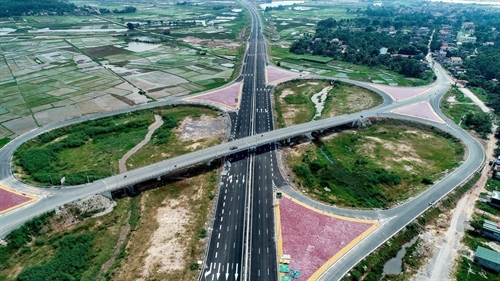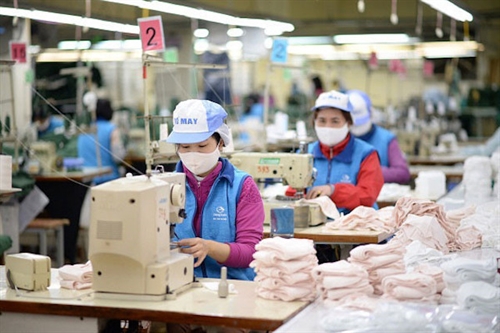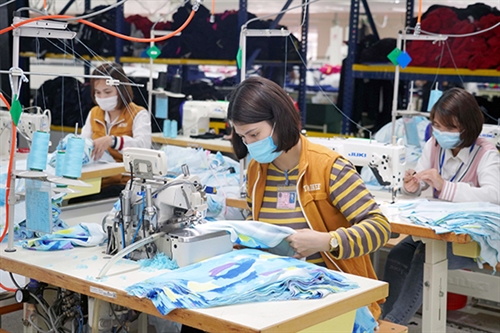The 2022 Law on Domestic Violence Prevention and Control (the Law), which will supersede its 2007 predecessor from July 1 this year, aims to improve the regulations on domestic violence prevention and control toward strengthening measures to protect human rights in accordance with the 2013 Constitution and raise the effectiveness and efficiency of state and social institutions as well as uphold the role of families in this field. It is also expected to contribute to preserving the fine traditional cultural values of families and the nation and promoting socio-economic development of the country in the new situation.
Composed of 56 articles, the Law regulates the prevention, stoppage, protection, support, and handling of violations concerning domestic violence prevention and control. It specifies conditions for assurance of domestic violence prevention and control and defines the state management of and responsibilities of agencies, organizations, families and individuals in domestic violence prevention and control.
The Law focuses on three major issues: measures for preventing domestic violence and better protecting domestic violence victims; mechanisms for coordination in, and conditions for, domestic violence prevention and control activities; and mobilization of social resources for domestic violence prevention and control activities.
Compared to its previous version, the Law has remarkable changes.
 |
| An art performance to celebrate the Vietnamese Family Day 2022__Photo: Tuan Duc/VNA |
Acts of domestic violence
The Law lists 16 groups of acts of domestic violence in which some new acts are added as compared to the 2007 version.
Under Article 3 of the Law, acts of domestic violence include:
- Persecuting, maltreating, beating, threatening or committing other intentional acts that harm the health or life of other family members;
- Insulting, nagging or committing other intentional acts that offend the honor or dignity of other family members;
- Forcing the witnessing of violence against humans and animals in order to frequently impose psychological pressures;
- Leaving other family members alone; failing to bring up or take care of family members who are children, pregnant women, women nursing their children aged under 36 months, the elderly, people with disabilities, or people unable to take care of themselves; or failing to educate family members who are children;
- Practicing discrimination in terms of body, gender or ability of family members;
- Preventing family members from meeting with relatives or from having lawful and healthy social relations, or committing other acts aimed to isolate them and frequently impose psychological pressures;
- Obstructing the exercise of rights and fulfillment of obligations concerning family relationships between grandparents and grandchildren, between parents and children, between wives and husbands, or among siblings;
- Revealing or spreading information about the private life, personal secrets and family secrets of family members in order to offend their honor and dignity;
- Forcing performance of sexual acts against the spouse’s will;
- Forcing performance of obscene acts; or forcing others to listen to sounds, view images or read contents related to pornography and incitation of violence;
- Forcing early marriage, marriage or divorce or obstructing lawful marriage or divorce;
- Forcing pregnancy, abortion or fetal sex selection;
- Appropriating or destroying common property of family members or private property of other family members;
- Forcing family members to over-study, overwork, or make financial contributions beyond their capacity; controlling family members’ property and incomes in order to create physical, psychological or another dependence;
- Isolating or confining family members; and,
- Illegally forcing family members to leave their lawful abode.
The above-mentioned acts of domestic violence, if committed by divorced or cohabiting couples; parents, stepchildren and siblings of divorced or cohabiting couples; or people who were once adoptive parents and adopted children, are also defined as acts of domestic violence under the Government’s regulations.
Measures to stop acts of domestic violence and protect domestic violence victims
Article 22 of the Law defines the following measures to stop acts of domestic violence and protect and support victims of domestic violence:
- To force perpetrators of domestic violence to terminate acts of domestic violence;
- To request perpetrators of domestic violence to show them up at the commune-level police office of the locality where domestic violence occurs;
- To ban perpetrators of domestic violence from contacting domestic violence victims;
- To provide temporary shelters and essentials for domestic violence victims;
- To take care of and provide medical treatment for domestic violence victims;
- To provide domestic violence victims with legal aid, psychological counseling and skill training for them to deal with acts of domestic violence;
- To educate and help perpetrators of domestic violence in terminating acts of domestic violence;
- To criticize perpetrators of domestic violence in residential communities; and,
- To request perpetrators of domestic violence to perform jobs to serve the community.
Noticeably, the application of the above measures to foreigners residing in Vietnam must comply with the Government’s regulations.
The Law also introduces measures to stop, and secure the handling of, administrative violations in accordance with the law on handling of administrative violations; and measures to stop perpetrators of domestic violence and protect victims of domestic violence in accordance with the criminal procedure law.
International cooperation on domestic violence prevention and control
International cooperation aims to take advantage of resources for domestic violence prevention and control activities. Under Article 8 of the Law, international cooperation on domestic violence prevention and control will be carried out on the principles of equality, respect for independence and sovereignty, and compliance with Vietnam’s law and international law.
International cooperation on domestic violence prevention and control covers: (i) joining international organizations; concluding and implementing treaties and international agreements on domestic violence prevention and control; (ii) formulating and implementing programs, projects and activities on domestic violence prevention and control; (iii) exchanging information and experience on domestic violence prevention and control; and (iv) conducting scientific research and training human resources on domestic violence prevention and control.
The State encourages agencies, organizations and individuals to provide aid, donations, contributions, support, funds, human resources, physical foundations and necessities for domestic violence prevention and control; international cooperation on domestic violence prevention and control; development of models to provide consultancy on building of happy families, prevent domestic violence and support domestic violence victims; and development of a network of population collaborators involved in family affairs and domestic violence prevention and control in the community.
Regarding the responsibility for domestic violence prevention and control, Article 47 of the Law says that the Government will perform the unified state management of domestic violence prevention and control work and once every two years or extraordinarily send reports on this work to the National Assembly.
Meanwhile, the Ministry of Culture, Sports and Tourism will take responsibility before the Government for performing the state management of domestic violence prevention and control and practicing interdisciplinary coordination in domestic violence prevention and control.
Other ministries and ministerial-level agencies will have to perform the state management of domestic violence prevention and control work as assigned. For their part, People’s Committees at all levels will perform the state management of domestic violence prevention and control work in localities. Particularly, provincial-level People’s Committees must, like ministries and ministerial-level agencies, compile statistics of such work for submission to the Ministry of Culture, Sports and Tourism.-
